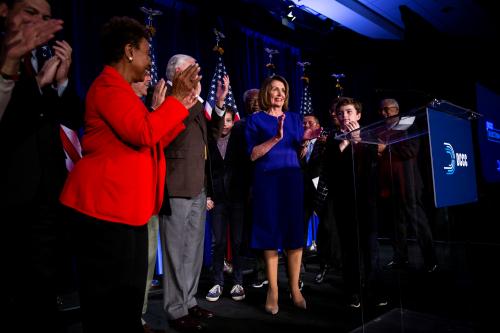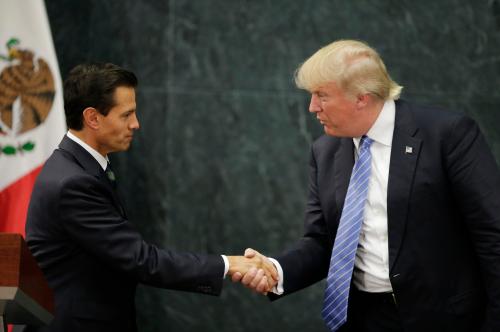One unreported item regarding President Trump’s nominee for the U.S. Supreme Court, Judge Neil Gorsuch of the U.S. Court of Appeals for the Tenth Circuit, is that he would bring more private practice exposure to telecommunications law to the court than anyone in history. Justice Antonin Scalia, whose death created the vacancy that Gorsuch is slated to fill, had a deep understanding of the field due to his prior service as general counsel of the White House Office of Telecommunications Policy during the Nixon administration. In contrast, Judge Gorsuch spent a decade at one of DC’s premier law firms, Kellogg, Huber, Hansen, Todd, Evans & Figel PLLC. According to Vault, a reference source that profiles leading law firms, Kellogg Huber Hansen has “a particular depth of experience in the telecommunications industry, representing companies like Verizon and AT&T in both court litigation and dealings with the FCC.”
This environment, which Gorsuch experienced daily as a practitioner, likely helped shape his view regarding the power of the Federal Communications Commission (FCC) and other federal agencies involved in regulatory decisionmaking. As a judge, this perspective was reflected in his recent opinion dealing with a seminal Supreme Court case, Chevron U.S.A., Inc. v. Natural Resources Defense Council (1984). The opinion in that decision has set the guidelines for when reviewing courts must defer to agency interpretations of ambiguous statutory language. It has emboldened the FCC and its peers to fill in the blanks with new regulations when Congress has not been specific about what an agency must do.
Last August, Judge Gorsuch issued a concurring opinion in a Tenth Circuit case, Gutierrez-Brizuela v. Lynch, that directly challenges what many assumed is enduring legal doctrine. He wrote,
“There’s an elephant in the room with us today…the fact is Chevron…permit[s] executive bureaucracies to swallow huge amounts of core judicial and legislative power and concentrate federal power in a way that seems more than a little difficult to square with the Constitution of the framers’ design…. What would happen in a world without Chevron? If the goliath of modern administrative law were to fall? Surely Congress could and would continue to pass statutes for executive agencies to enforce. And just as surely agencies could and would continue to offer guidance on how they intend to enforce those statutes. The only difference would be that courts would then fulfill their duty to exercise their independent judgment about what the law is.”
For those seeking to project what this opinion might mean for the nation’s highest court, Gorsuch seems unlike Chief Justice John Roberts, who told the Senate Judiciary Committee at his confirmation hearing that he saw his judicial role as akin to an umpire calling balls and strikes. At least as far as judicial review of FCC and other agency matters, Gorsuch clearly represents a philosophy that is more skeptical of regulatory overreach and more deferential to Congress. This may send a mixed message for political conservatives who are supporting his nomination—less regulatory intrusion, but perhaps a more activist judiciary. For political liberals, Gorsuch’s assertion of a more powerful role for courts might inspire greater confidence that he would check executive authority by the Trump administration and its successors during what may be his very long tenure on the Supreme Court.
The Brookings Institution is committed to quality, independence, and impact.
We are supported by a diverse array of funders. In line with our values and policies, each Brookings publication represents the sole views of its author(s).







Commentary
Why Judge Gorsuch is a regulatory skeptic
February 21, 2017